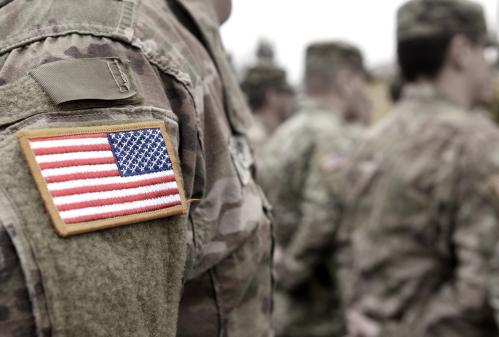When Hillary Clinton visited eastern Congo this week, she stepped into a land of fairy-tale beauty and incredible potential. I remember vividly the day in 1982 when my incoming “class” of Peace Corps volunteers made the same trip. Eastern Congo may be the most magical place on the planet; I remember thinking it did not even belong on this planet, so surreal were its mountains, lakes, volcanoes, and lush forests and farmland.
Unfortunately, the tragedies and turmoil afflicting this area have no place in this world, either. For much of the time that Mobutu Sese Seko ruled then-Zaire, the eastern region was poor but reasonably stable. Since the early 1990s, however, it has been on a rapid descent. Genocide in Rwanda spilled over the border; the Democratic Republic of the Congo’s own conflicts accelerated, fueled by the region’s mineral wealth; health-care infrastructure disappeared; sexual violence became worse than anywhere else on Earth.
Clinton has taken the first step by calling attention to this region and its terrible problems. But the United States has shown interest in Congo before to little avail. If the situation is to improve, we need to do the one thing that is required above all others – strengthen security, especially in eastern Congo. And by now we should have learned the hard way that there is only one way to do so – by leading through example, with the deployment of at least modest numbers of American troops, to spark a broader strengthening of the current U.N. mission. If the Afghanistan mission was undermanned last year with only 60,000 NATO-led troops in a country of 30 million, how can a U.N. mission of 20,000 address the challenges of Congo and its 60 million people?
Yet how can the U.S. military, so overstretched in strategically crucial wars in Iraq and Afghanistan, spare any troops for this type of primarily humanitarian venture? The dilemma is similar to that faced in recent years in Darfur, where we wanted to do something but did not have the forces.
Admittedly, there may not be a solution tomorrow. But by tapping into President Obama’s call for a new spirit of volunteerism and national service, there may be a way to make a difference sometime in 2010. The idea involves a new type of military unit that the Pentagon should propose during its ongoing Quadrennial Defense Review.
For crises like those in Congo and Darfur, the United States should consider a radical innovation in recruiting policy. We should create a peace operations division in the Army with individuals enlisting specifically for this purpose. There would be risks in such a venture, to be sure. But they are manageable and tolerable risks, especially since most such deployments would be legitimated by the United Nations, carried out with partners such as key allies, and backstopped by the U.S. armed forces in worst-case scenarios.
The notion is this: Ask for volunteers to join a peace operations division for two years. They would begin their service with, say, 12 weeks of boot camp and 12 weeks of specialized training and then would be deployable. They would receive the same compensation and health benefits as regular troops, given their age and experience. Out of a division of 15,000 troops, one brigade, or about 3,000 to 4,000 soldiers, could be sustained in the field at a time.
This type of training would be modeled after standard practices in today’s Army and Marine Corps. To be sure, soldiers and Marines in regular units usually go beyond this regimen to have many months of additional practice and exercise before being deployed. But the peace operations units could be led by a cadre of experienced officers and NCOs – perhaps some of whom would be drawn back to military service after leaving (or being booted out because of the obsolete “don’t ask, don’t tell” policy).
The dangers of deploying such units to missions such as the one in Congo, would be real, but the risks would be acceptable. First, those volunteering would understand the risks and accept them. Second, in most civil conflicts such as Congo’s, possible adversarial forces are not sophisticated. Soldiers in the new division would not need to execute complex operations akin to those carried out during the invasion of Iraq or current operations in Iraq and Afghanistan. They would largely monitor villages and refugee camps, inspect individuals to make sure they did not have illicit weapons, and call for help if they came under concerted attack. Their jobs could be somewhat dangerous and would require discipline and reasonable knowledge of some basic infantry skills – but they would not be extremely complex. Care would have to be taken in deciding when to deploy this force, but it generally would be, given the scars of recent difficult American experiences in places such as Somalia.
Problems like Congo, Darfur and Somalia tend to get solved only with U.S. leadership. And the United States cannot truly lead on this issue while resisting any role for its own ground forces. It is time to recognize the contradiction of pretending otherwise and get on with a solution.
The Brookings Institution is committed to quality, independence, and impact.
We are supported by a diverse array of funders. In line with our values and policies, each Brookings publication represents the sole views of its author(s).



Commentary
Op-edU.S. Boots On Congo Ground
August 14, 2009